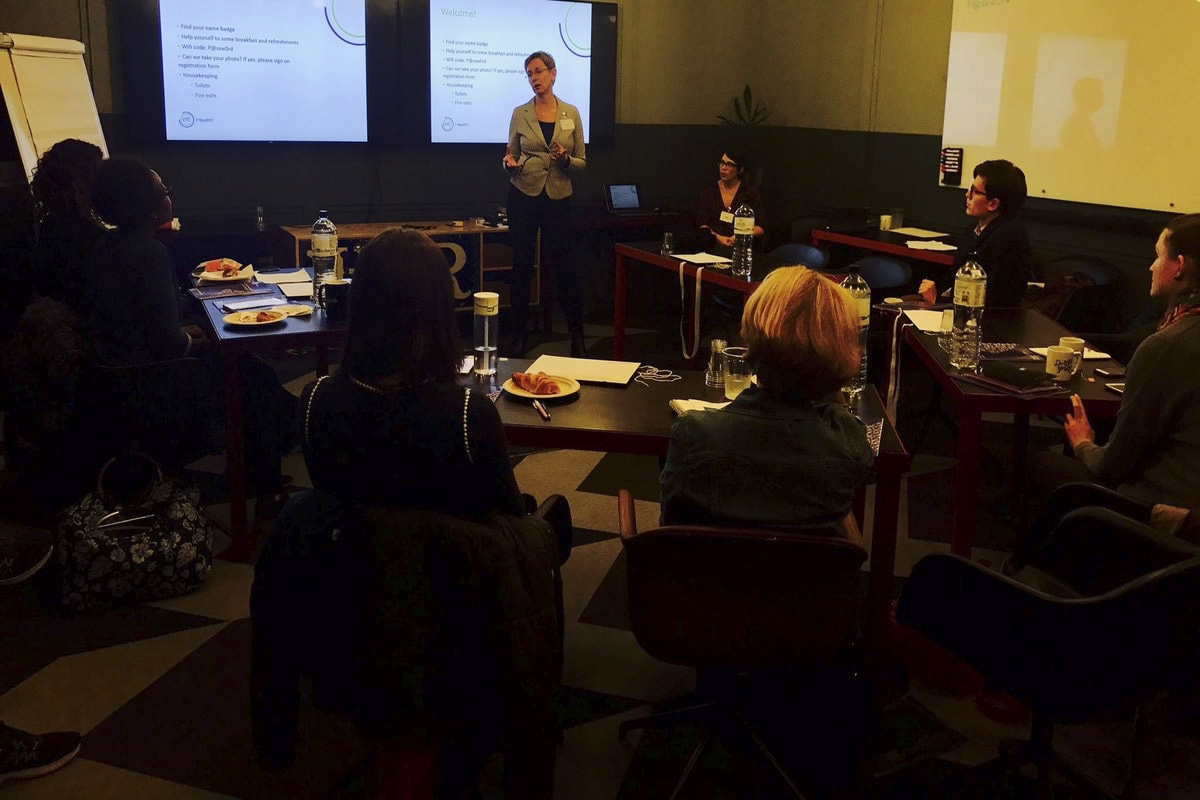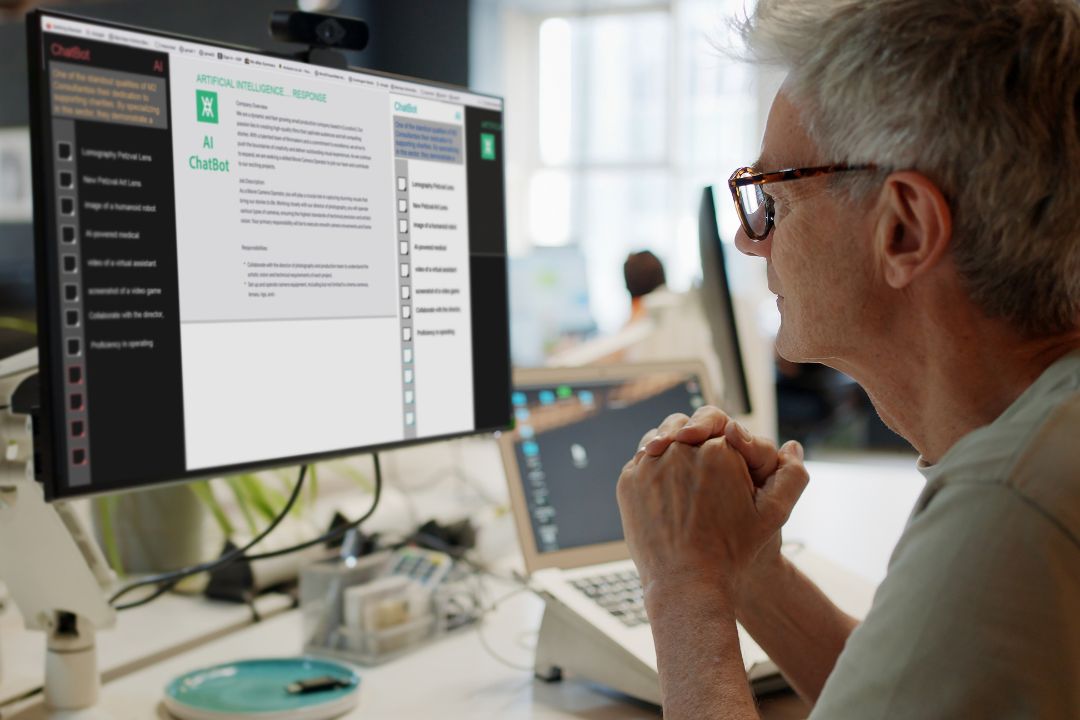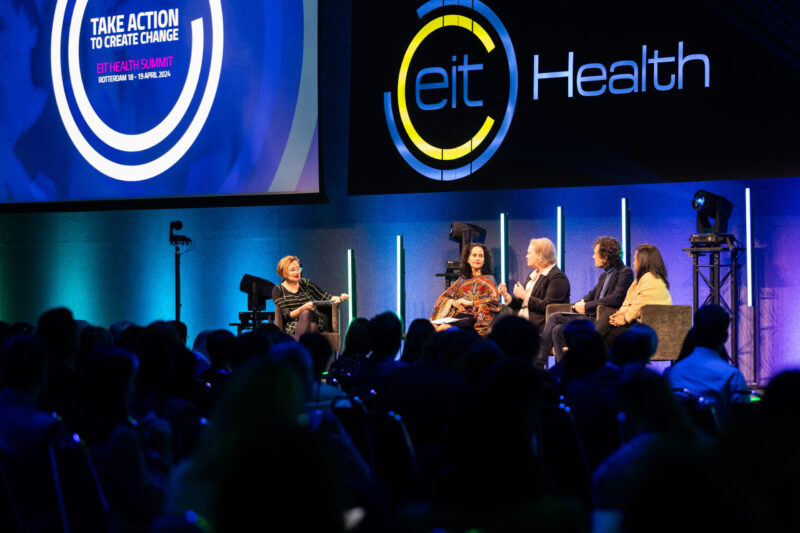16th July 2019
Expert Maria Piggin tells us more about CRISH and its future developments
Maria Piggin (Patient and Public Involvement Officer at the NIHR Biomedical Patient Experience Research Centre (PERC) shared her experience of creating and implementing CRISH, an EIT Health CAMPUS project launched in 2017 in the UK, Spain and Grenoble with the aim of Co-Creating Innovative Solutions for Health (CRISH).
“We have made patients the subject, and not just the object, of health research and innovation. Patients are no longer passive recipients of products and services but active decision-makers. In other words, they are co-creators.”
CRISH’s main objective has been to bring together key multidisciplinary stakeholders from the healthcare sector, including patients, to co-create innovative research, products or services that can improve the health of populations through the identification of unmet needs. This training has been delivered via a two-day short course followed by a face-to-face mentoring session. The original short course provided knowledge, skills and tools on patient experience methodology (XPA), responsible research and innovation components (RRI), entrepreneurship elements (ENT), and reciprocity and co-design methods (RcD), for a variety of health stakeholders.

We asked Maria a few questions about the impact of CRISH on health research and innovation and its future developments.
Q: Tell us more about CRISH’s co-creating and co-designing strategy on accelerating research and innovation in healthcare.
A: Delivering CRISH has been extremely rewarding for many reasons. It is not often that multidisciplinary groups of stakeholders get the opportunity to sit down together and try out the process of co-creation accompanied by mentors. The course provides an environment where those who may never have had any exposure to co-creation can try it out in a controlled setting and understand its value before applying the tools they have learned in their own organisations. We believe that these tools and skills will:
– increase health literacy and improve knowledge of the health system;
– stimulate patient-centred care and increase innovative solutions to improve healthcare/services delivery;
– conduct research in a more inclusive manner;
– increase value for money in healthcare innovations;
– incorporate patients’ views in planning of healthcare/services/research.
Q: What is the achievement of CRISH you are most proud of? Why do you think CRISH has been successful in accomplishing its mission?
A: I believe that the most important achievement of CRISH has been to see healthcare professionals realise the value that patients and members of the public bring to innovating in healthcare through working together on projects during the CRISH course.This includes attempting to reduce the power imbalance that often exists between healthcare professionals and patients (wanted or not). We also believe in leading by example and therefore, Imperial College lay Partners were involved in:
– co-designing the CRISH course and its delivery.
– co-creating in healthcare service provision.
Q: Did you experience any challenges in implementing this project in three different countries (UK, Spain and France)?
Implementing CRISH in the UK, Spain and France did bring up some challenges. Definitions are not the same across all three countries. Spain and France, for example, do not have the concept of “patient and public involvement” (PPI) which we have in the UK and which is a requirement of all publicly funded research. However, involving patients in research and service provision does take place in Spain and France, albeit using different terminology. “Patient engagement” is used in Spain to mean what we in the UK refer to as “patient involvement”. In the UK, PPI goes beyond what we know as “patient engagement” (disseminating and sharing information about research) and refers to the process of patients and members of the public informing research/service provision/innovation from the point of view of their lived experience with the view to enhancing the research/service/innovation. Therefore, once we understood these differences, we just accommodated our language depending on the country in which the course was being delivered.
Q: Did you face other challenges during the project?
The course was originally intended to be delivered in English in all three countries. However, it became apparent that students were able to have more in depth and valuable discussions about their projects in their native tongue. It was therefore decided that each course would be delivered in the language of the host country. This meant that those with the appropriate level of language skills required were co-opted within partner organisations to assist with co-delivery of the course.
Q: The success of CRISH in 2017 led Maria and her collaborators to further develop the project for the following year. The proposal for a further CRISH course in 2018 was successful and the first course is planned for 19 and 20 April in London followed by two courses in Barcelona in May and October and a course in Grenoble in November 2018. Is there something new about this second iteration of CRISH?
A: The second iteration of CRISH will follow the original ideas and approaches of CRISH. We will incorporate principles and practices of translational medicine delivered by a new partner, Dr Josep María Llovet of Barcelona University, together with a mini MOOC. We also hope to involve a greater variety of healthcare professionals as stakeholders participating in the sessions, including those from the healthcare industry.
Interview conducted by Laura Vicinanza.
AI health start-ups lead Europe’s push for competitiveness in healthcare innovation

European AI healthcare start-ups remain competitive.
25 years of tracking innovation: Why Europe needs to collaborate or risk falling behind

How to deliver the pace of innovation Europe needs.
Divided, we will fall behind: Why we shouldn’t fear a connection between research and competitiveness

Our CEO's view on the future of healthcare innovation.